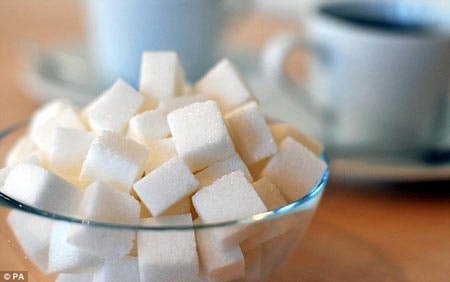Sugar is as bad as cigarettes!
Doctors and academics say a 30% reduction in global sugar consumption is needed to stem a wave of disease and death from the food, as even a fat-free yogurt can contain 5 teaspoons of sugar.
 |
| Photo: Doctors say a 30% reduction in sugar intake is needed to stem a wave of illness and death globally. |
“Sugar is the new tobacco,” said Simon Capewell, Professor of Clinical Epidemiology at the University of Liverpool. “Ubiquitous, soft drinks and snacks are exposing unsuspecting parents and children to a food industry that puts profit above consumer health.”
Obesity already creates a huge burden of illness and death. Obesity and diabetes already cost the UK over £5 billion a year. Without regulation, this figure will exceed £50 billion by 2050.
Britons consume 12 teaspoons of sugar a day and some adults consume as much as 46 teaspoons a day, making them the highest sugar consumers in the world. The maximum recommended by the World Health Organisation (WHO) is 10 teaspoons, although this can be halved.
UN agencies say there is compelling evidence on sugary drinks and the link between sugar consumption and obesity, diabetes and cardiovascular disease.
A study on sugar is quite surprising because sugar is found in so many foods, including products that are considered delicious and healthy.
Scientists say food companies could reduce the amount of sugar they add to their products by 20-30% within three to five years. This would cut 100 calories from the average person’s daily diet. This could halt or even reverse the rapid rise in obesity and sugar-related disease.
Professor Graham MacGregor, of the Wolfson Institute of Preventive Medicine in London, said: “It is time to tackle the obesity epidemic in the UK and around the world. We must start a coherent and logical plan to gradually reduce people’s calorie intake by gradually phasing out added sugars in food and drinks. This is a simple plan that puts the food industry on a level playing field, and must be adopted by the Department of Health to reduce the huge and completely unnecessary amounts of sugar added to consumers’ food by the Food and Drink Industry.”
“Increasing sugar in foods does not provide nutritional value nor does it promote satiety,” said Dr. Aseem, the group’s scientific director. “In addition to being a major cause of obesity, there is growing evidence that increased sugar intake also increases the risk of developing type 2 diabetes, metabolic syndrome and fatty liver disease. We must protect children in particular from these diseases and the food industry needs to immediately reduce the amount of sugar they are adding, especially to children’s foods, and stop advertising junk food and soft drinks to children.”
However, sugar manufacturers have dismissed the claims of medical experts and have not agreed with the scientific evidence. Manufacturers counter that numerous studies have been carried out by experts from the British Dietetic Association, the European Food Safety Authority, and the Institute of Medicine to investigate the potential link between sugar and diabetes, and have also confirmed that diabetes is not caused by eating sugar.
Barbara Gallani, a Food and Drug Administration (FDA) member, also denied responsibility for obesity. They said the food industry has provided clear information about sugar content to consumers through the use of numbers and color-coded labels. Sugar, or any other nutrient that is considered problematic, is not the sole cause of obesity, so there is no simple or single solution.
Professor Shrinath Reddy, a cardiologist at the Harvard School of Public Health, said there is compelling evidence about sugary drinks and the link between sugar consumption and obesity, diabetes and cardiovascular disease.
According to dantri.com






